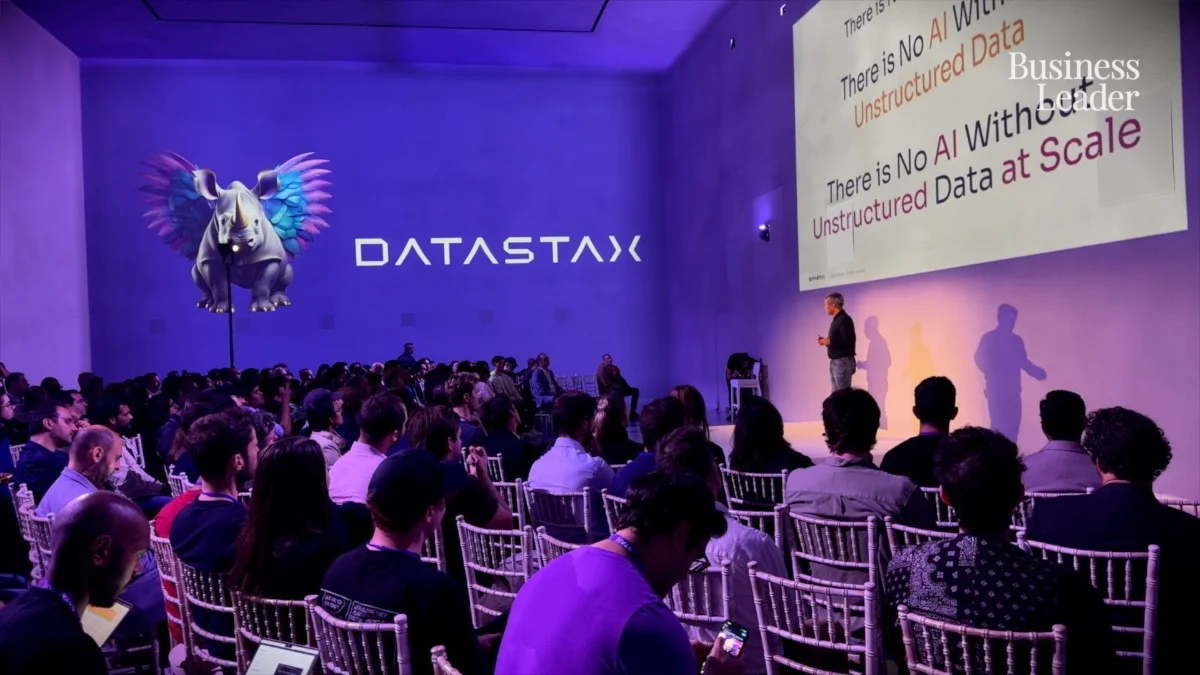
In this instalment of our weekly video series, My Business Leader Secret, we talk to Chet Kapoor, who is the CEO of US tech company DataStax.
His secret is that even in the world of software and tech, which often involves highly specialised roles and complex analytical decisions in a fast-paced environment, business success still comes down to fundamental decisions around people management.
Tech executive Chet Kapoor was born and raised in India. In 1985 he moved to the US to study at Arizona State University and shortly after joined Next, the company Steve Jobs set up after leaving Apple.
After a career at IBM and Google, Kapoor became CEO of DataStax in 2019.
DataStax specialises in an open-source, cloud-based data storage and retrieval system known as Cassandra that was developed by Facebook but then spun out. It is used in applications like Netflix’s recommendation system and Apple’s iMessage. DataStax was set up to use Cassandra for enterprise applications.
Under Kapoor’s leadership, the company has specialised in generative AI. Its customers include Audi, Bud Financial and Capital One. DataStax is a unicorn tech company, valued by investors at more than $1.6bn (£1.26bn).
Business Leader caught up with Kapoor at its London event for customers, held at the Frameless immersive art gallery. The main piece of advice he wanted to share is about people management.
“It’s all about people,” says Kapoor, “and when there's a doubt, there is no doubt with people.”
He believes if an individual is not working well for the team, then he or she needs to be removed quickly, for the benefit of everyone.
“When things don't work out,” Kapoor warns, “the goal should be to make the decision as quickly as possible, it’s probably better for the individual.”

In terms of the outlook for business and AI, he thinks companies fall into three main “buckets”. They are either going to “delegate, accelerate or reinvent”.
“In the delegate part, they're going to talk about making things more efficient – and AI can make things more efficient, [maybe] 30 per cent more efficient.”
This approach means AI “augments” the capabilities of the current workforce. Those businesses who choose to “accelerate” are not just becoming more efficient and cutting costs, they are also fundamentally restructuring the business.
“But the really interesting companies want to [use AI to] reinvent themselves,” says Kapoor. “They want to be 300 per cent better”, he says, and are willing “to turn the entire company inside out to try and figure out how to make that happen.
“They treat AI as a blank sheet of paper, a chance to do something completely different that we had never thought would be possible.”
Related and recommended
Contestants from The Apprentice reveal the fundamental business lessons they learned from taking part in the TV show
From global talent pools to AI-powered documentation, a work-from-anywhere model is a new way of thinking about productivity, innovation and teamwork
The story of how cycling brought Business Leader member John Readman together with his co-founder and investors
Stuart Machin’s hands-on leadership has revived M&S, tripling its share price and reshaping its future, by obsessing over the details, from shop floors to staff message boards





